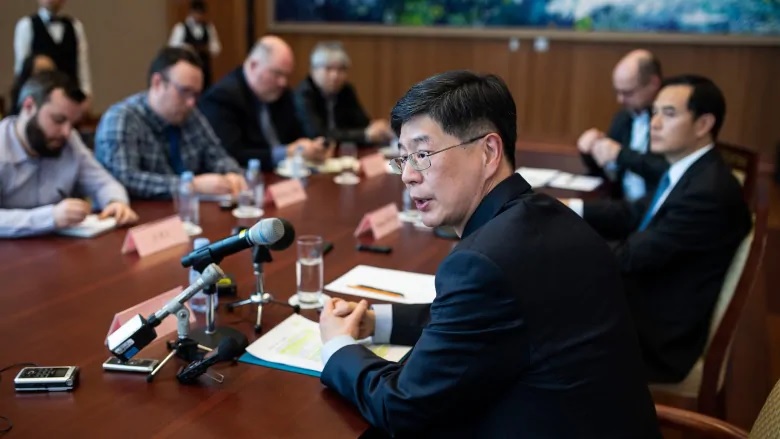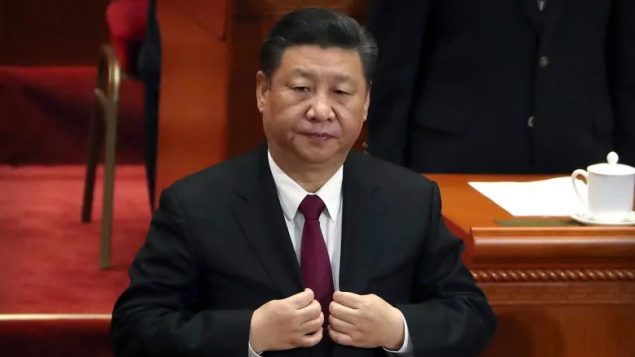A long time strong proponent of Canada-China relations, has recently changed position.
Margaret McCuaig-Johnston, had almost four decades of service in the upper levels of Canadian government in science and technology policy and Chinese affairs. She is currently a Senior Fellow with the China Institute at the University of Alberta and Senior Fellow at the Institute of Science, Society and Policy, University of Ottawa.
She feels that China has evolved into a much different country under the current leadership than it was decades ago. She feels the country is lacking respect for international law and conventions. She has joined a chorus of other experts who in varying ways, are saying Canada needs to rethink its policies toward China, getting tougher on one hand, and looking to expand trade to other countries in the Indo-Asian region.
ListenRecently she wrote an opinion piece for the Macdonald-Laurier Institute, an influential Canadian think tank on policy. Her article is entitled, “Dealing with the New China: How Canada can reset its relations with Beijing”.

Margaret McCuaig-Johnston, a Mandarin speaker and long analyst of Canada Chinese affairs in science and technology. ( University of Ottawa)
While there has been concern over cyber hacking and theft of intellectual property it was the action of the arbitrary arrest of Canadians Michael Kovrig and Michael Spavor, an action she classifies as state kidnapping ,that caused her to change her position. This came in conjunction with the sudden increase to a death sentence for two other Canadians in custody in China, having her locked suitcases secretly broken into and searched, and being told that China had created a long list of Canadians they could detain if it so chose.
As a Mandarin speaker she notes that the word “han” spoken to Canadian officials or business persons is interpreted by the Canadians as meaning the Canadians are nice, open, and friendly, but for the Chinese the meaning is silly, naïve, and of little concern. In other words, she says they smile to the Canadian faces, but denigrate them behind their backs.

Ambassador of the People’s Republic of China to Canada Cong Peiwu participates in a roundtable interview with journalists at the Embassy of China in Ottawa on Friday, Nov. 22, 2019. It seems there is no change in the tough talk on issues from the previous ambassador, and no change regarding imprisoned Canadians (Justin Tang/THE CANADIAN PRESS)
While she commends the current Canadian government for getting other countries to indicate their concern over Chinese actions in the case of the imprisoned Canadians, many critics have said this is only an annoyance to the current Communist government, and many are recommending that to earn any respect from the Chinese government, much tougher actions must take place as well as diplomatic words.
Additional information
- TorStar: J. Nutall: Nov 23/19: A ‘friend of China’ no more: Why a longtime Canadian ally has become one of Beijing’s fierce critics
- Fortune Magazine: R Hackett: Oct 19/19 Chinese Hacking: The Plane Made from Stolen Tech?
- Simon Fraser University: (Youtube): Oct 11/19: Conversations that matter: OpEd; Why the Canada-China relationship needs a reset (w-Jonathan Manthorpe-author) (30 min)
- Macdonald Laurier Inst. : The Dragon at the Door-The future of Canada-China relations
- Assembly: J. Smith: Oct 24/12: Did Outsourcing and Corporate Espionage Kill Nortel?
- Financial Review: J. Kehoe: May 28/14: How Chinese hacking felled telecommunication giant Nortel
- Two Tears on the Window: Julia and Kevin Garrett: book recounting the experience of two Canadians imprisoned in China







For reasons beyond our control, and for an undetermined period of time, our comment section is now closed. However, our social networks remain open to your contributions.